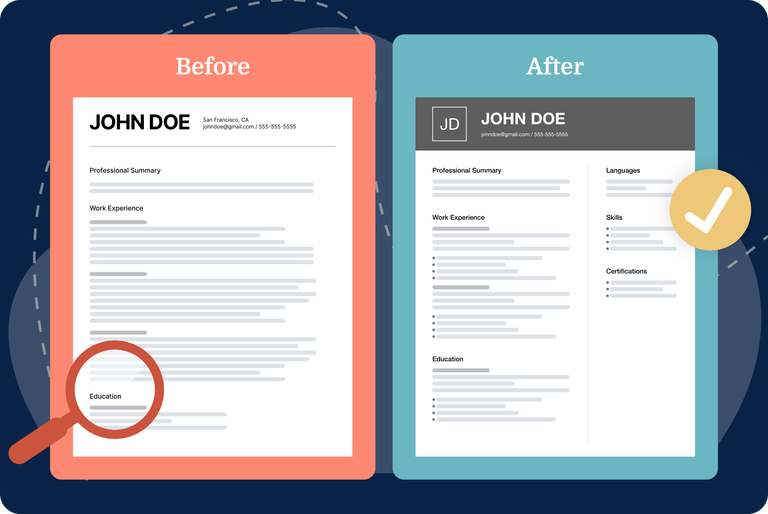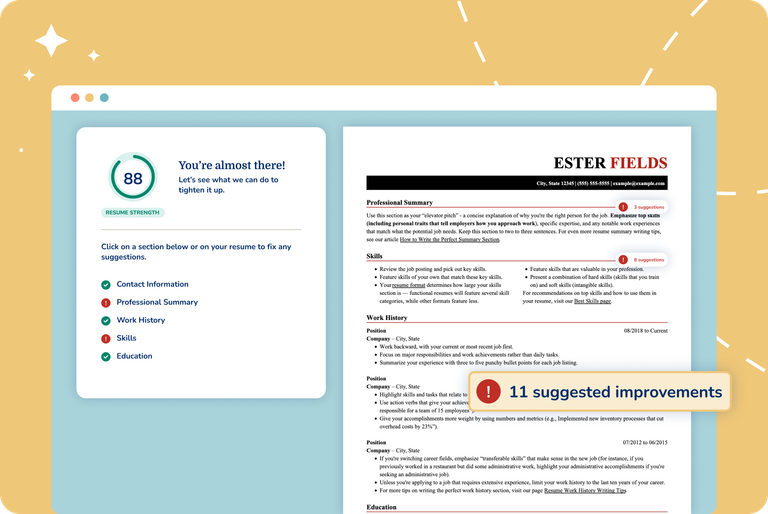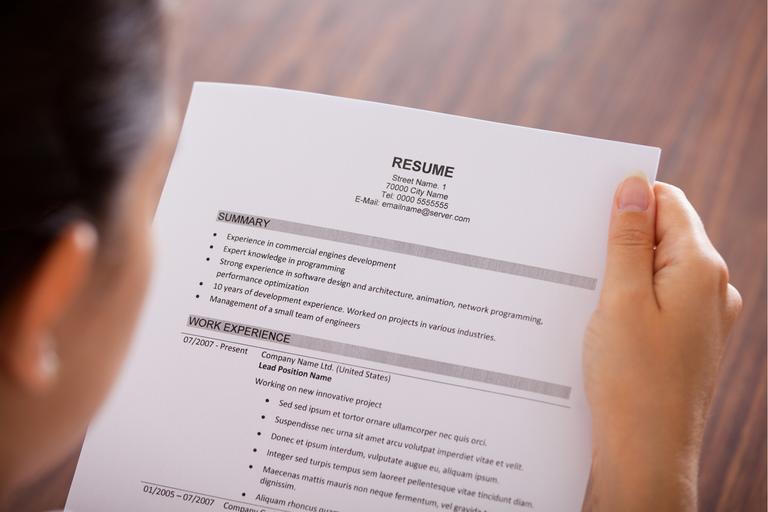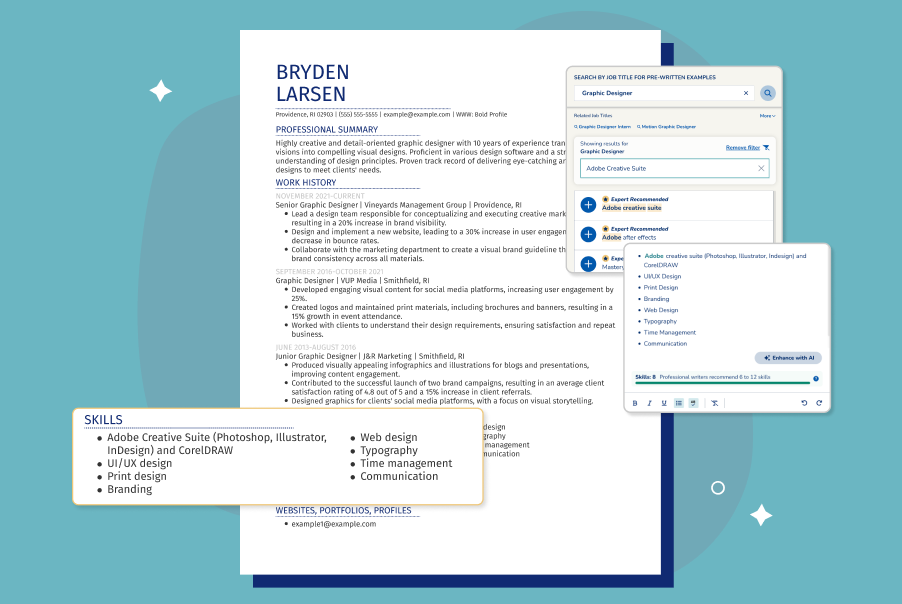Construction Skills for a Resume (Examples & Tips)

Our customers have been hired at: *Foot Note
AI Resume Skills Generator

Construction workers are versatile, hands-on professionals with specialized skills in trades such as carpentry, plumbing and masonry. They are the backbone of every building project, bringing engineering and architectural designs to life.
The U.S .Bureau of Labor Statistics projects employment in the construction industry will grow four percent through 2032, with approximately 151,400 job openings per year expected over the next decade. You must have the right skills for the job to stay ahead of the curve.
Make a resume with MyPerfectResume
Our Resume builder can help you write the perfect resume. Start Now!
What are construction skills?
Construction skills are the knowledge and abilities construction workers use to perform the essential functions of their jobs. Construction workers use various skills, such as math communication, problem-solving, and teamwork, to excel at their jobs. Depending on their job title, they also need trade-specific technical skills and knowledge.
Examples of construction skills
Hard skills
Hard skills are concrete abilities and knowledge gained through education and experience. Construction workers need a diverse set of hard skills to excel at their jobs, including:
- Build codes and regulations
- Blueprint reading
- Building information modeling
- Safety
- Machinery
- Demolition
- Concrete
- Welding
- Project management
- Quality control
Soft skills
Soft skills are pivotal in the construction industry, complementing the technical expertise required for building structures. Here are ten essential soft skills for construction jobs.
- Delegation
- Patience
- Assertiveness
- Attention to detail
- Self-awareness
- Stress management
- Customer service
- Attention to detail
- Time management
- Decision making
Physical skills
Physical skills are indispensable for executing various tasks safely and effectively in construction. Here are some must-have physical skills in construction:
- Strength and endurance
- Manual dexterity
- Balance and coordination
- Stamina
- Flexibility
- Grip strength
- Physical agility
- Tolerance for physical discomfort
- Depth perception
- Quick reflexes
Technical skills
Technical skills are the heart of construction work, encompassing a wide range of specialized abilities and knowledge, such as:
- Carpentry
- Plumbing
- Electrical work
- Concrete
- Welding
- Roofing
- HAZMAT
- HVAC
- Surveying and leveling
- Ability to complete work
Interpersonal skills
Interpersonal skills are vital for construction workers to effectively communicate, collaborate and interact with others on the job site, as well as with clients and vendors.
Key interpersonal skills for construction workers include:
- Cultural sensitivity
- Relationship-building
- Negotiation
- Tactfulness
- Conciliation
- Conflict resolution
- Active listening
- Verbal communication
- Diplomacy
- Consensus-building
Transferable skills
Transferable skills are hard and soft skills that can be applied across various roles and industries. Here are 10 valuable transferable skills for the construction industry:
- Organizational skills
- Continuous learning
- Critical thinking
- Perseverance
- Adaptability
- Resourcefulness
- Math
- Analytical skills
- Teamwork
- Collaboration
How to improve your construction skills
Improving your construction skills requires hands-on experience, formal education, training programs and continuous learning.
Here are some effective ways to enhance your construction skills:
- On-the-job experience: Gain practical experience by working on construction sites under the guidance of experienced professionals. Hands-on experience is one of the best ways to develop construction skills in real-world scenarios.
- Formal education: Consider pursuing formal education in construction-related fields such as carpentry, masonry, electrical work, plumbing, or construction management.
- Apprenticeships: Apprenticeships are a common way to break into the construction industry because they provide structured training and mentorship opportunities, allowing you to learn from seasoned professionals while earning a wage.
- Training programs: Attend workshops, seminars and training programs offered by industry organizations, manufacturers, or vocational training centers. These programs cover specific skills, techniques, tools and safety practices relevant to the construction industry.
- Certifications: Obtain industry-recognized certifications in specialized areas such as welding, electrical wiring, HVAC installation, or construction safety. There are a number of certification programs available to enhance your skills and learn new technologies and tools.
- Online resources: There is a plethora of free information online to help you improve your construction skills and learn the latest techniques and tools in the industry. Research construction-focused websites, publications, forums, videos and social media groups for insights, tips and advice from leading industry experts.
- Networking: Build relationships with other construction workers, suppliers and leaders to exchange knowledge, share best practices, and stay updated on industry trends and developments.
- Solicit feedback: Ask supervisors, colleagues, or mentors about areas where you excel and identify areas for improvement. Constructive feedback can help you refine your construction skills and address weaknesses or areas of concern.
How to highlight construction skills on your resume
When writing your resume, you must be strategic about how and where to display your construction skills. Obviously, you should have a dedicated skills section to display your job-relevant skills, but consider highlighting them throughout your resume for a bigger impact.
Here’s how to display your construction skills in your resume in six steps:
- First, consider your resume format. There are three standard formats, each of which will highlight your construction skills differently.
- Next, choose a resume template that will display your construction skills clearly and professionally.
- Prepare to write your resume by reviewing the job description and matching your construction skills and accomplishments to the job requirements.
- Add two or three of your top skills to your professional summary or resume objective to make a great impression from the get-go.
- Use your work history section to show what you’ve accomplished with your construction skills. For example, "Led a team of 15 construction workers to complete a $10 million commercial building project three weeks ahead of schedule, resulting in a 20% reduction in overall project timeline.”
- Create a skills section to highlight the required skills. To make each one stand out, you might create categories to showcase specific types of skills, like “Technical Skills,” “Interpersonal Skills,” and “Physical Skills.”
Common tools and technologies used in construction
Construction projects rely on various tools and technologies at every stage, from site preparation and foundation work to framing, finishing, and maintenance. Becoming skilled in several of these tools and technologies will help you stand out to employers and improve your chances of landing your dream job in construction.
Here are 12 common tools and technologies used in construction:
- Power tools: Electric or pneumatic tools such as drills, saws, nail guns, and impact wrenches are essential for cutting, drilling, fastening, and shaping materials.
- Hand tools: Basic hand tools, such as hammers, screwdrivers, wrenches, pliers, tape measures, levels, and utility knives, are used for various tasks, including assembly, installation, and repair.
- Heavy equipment: Construction sites often utilize heavy machinery such as excavators, bulldozers, loaders, cranes, dump trucks, and forklifts for earthmoving, lifting, transporting materials, and other heavy-duty tasks.
- Surveying instruments: Instruments like total stations, GPS receivers, and laser levels are used for precise measurement, layout, and mapping of construction sites, ensuring accurate positioning of structures and infrastructure.
- Construction software: Various software applications are used for project management, design, estimating, scheduling, and collaboration. Examples include Building Information Modeling (BIM) software, project management platforms, and computer-aided design (CAD) software.
- Safety equipment: Personal protective equipment (PPE) such as hard hats, safety glasses, gloves, ear protection, and high-visibility clothing are essential for ensuring the safety of construction workers on-site.
- Concrete equipment: Equipment for mixing, pouring, and finishing concrete includes concrete mixers, pumps, vibrators, screeds, and trowels. These tools ensure the proper placement and finishing of concrete structures.
- Scaffolding and ladders: Scaffolding systems and ladders provide safe access to elevated work areas and facilitate construction, maintenance, and repair tasks at height.
- Material handling equipment: Equipment such as cranes, hoists, conveyors, and pallet jacks to lift, transport, and position heavy materials and equipment on construction sites.
- Power generators: Portable generators provide backup power supply on construction sites where access to mains electricity may be limited or unavailable, ensuring continuity of operations.
- Temporary structures: Temporary structures like scaffolding, shoring, formwork, and temporary fencing are erected to support construction activities, provide access, and ensure safety during the building process.
- Environmental monitoring equipment: Equipment for monitoring environmental factors such as air quality, noise levels, vibration, and dust emissions helps ensure compliance with regulatory requirements and mitigate potential environmental impacts.
Best construction certifications
Certifications on your resume enhance your credibility, show your dedication to the field, demonstrate your expertise to employers and clients, and open up opportunities for career advancement.
When choosing a certification, research the specific requirements and prerequisites for each and choose those that match your career goals and interests.
There are several valuable certifications for construction work, depending on your specific area of expertise and career goals. Here are some widely recognized certifications in the construction industry:
- OSHA training, American Concrete Institute (ACI) Certification
- Leadership in Energy and Environmental Design (LEED) Certification
- National Commission for the Certification of Crane Operators (NCCCO) Certification
- Associate Constructor (AC)
- Certified Professional Constructor (CPC)
- Certified Construction Manager (CCM)
Key takeaways
Before you leave this guide to construction skills for a resume, remember these key points:
- Construction workers need a variety of skills ranging from the physical to the interpersonal to excel at their craft.
- The most effective ways to enhance your construction skills are apprenticeships, self-learning through online resources, certifications and mentorship.
- Certifications in construction can help you make the best possible impression on employers and might be the key to getting the job you want.
- Construction workers should stay on top of the latest trends and technologies in their field to excel in their careers. Some tools and technologies to master include: safety equipment, power tools, construction software, materials and environmental monitoring equipment.
- Disperse your construction skills throughout your resume for the biggest impact.
- In your job history section, show how you have used your skills through measurable achievements.
FAQ
What are the common types of construction jobs?
Common construction jobs include carpenters, electricians, plumbers, masons, welders, heavy equipment operators, construction managers, project managers, and laborers.
How do I create a construction resume that stands out?
Here are three ways to create a standout construction resume:
- Highlight your job-relevant skills, experience, certifications, and achievements in every section of your resume.
- Showcase examples of projects you’ve worked on, as well as your role, responsibilities, and accomplishments for each job.
- Tailor your resume to each job application using keywords from the job description.
What are some essential skills for construction jobs?
Essential skills for construction jobs include technical skills such as carpentry, plumbing, and electrical work and soft skills such as communication, teamwork and problem-solving.
How can I improve my construction skills?
You can improve your construction skills by gaining hands-on experience on construction projects, pursuing formal education or training programs, attending workshops or seminars, obtaining certifications, and seeking mentorship from experienced professionals.
How can I gain experience in construction if I'm just starting?
If you do not have construction experience and are applying for your first job, you can participate in apprenticeship programs, volunteer for programs like Habitat for Humanity or similar organizations, take entry-level construction jobs or laborer positions on construction sites and apply for on-the-job training and mentorship programs.
What certifications are valuable for construction jobs?
Valuable certifications for construction jobs include OSHA 10-Hour or 30-Hour Construction Safety Certification, LEED Green Associate, CMAA Certified Construction Manager (CCM), Project Management Professional (PMP), and various trade-specific certifications such as welding or HVAC.
What are some common challenges in construction work?
Common challenges in construction work include tight deadlines, budget constraints, adverse weather conditions, supply chain disruptions, labor shortages, coordination issues among subcontractors, and compliance with building codes and regulations.
How can I advance my career in construction?
You can advance your career in construction by gaining additional certifications or qualifications, pursuing further education or training, developing leadership and project management skills, seeking opportunities for promotion or advancement within your company, and networking with industry professionals.
What should I include in my construction job application?
In your construction job application, include a well-written cover letterhighlighting your relevant skills, experience and qualifications. Attach a professional resume that outlines your work history, education, certifications, and any relevant achievements or awards. Additionally, include references or letters of recommendation from previous employers or supervisors, if available.
Should I add references to my construction work resume?
We do not recommend that you include references in your construction work resume because employers prefer to request references later in the job application process. Plus, references on your resume give you more space to highlight your construction skills, accomplishments, and other qualifications employers want to see when searching for the best candidate
How we reviewed this article
Since 2012, we have helped more than 11 million job seekers. We want to make your career journey accessible and manageable through our services and Career Center’s how-to guides and tips. In our commitment to bring you a transparent process, we present our Editorial Process.
Sources
- Associated General Contractors of America. No author.Construction Data
- Construction and Civil Engineering Magazine. Article. No author. Top ten training requirements for construction workers
- Peopleready Skilled Trades. Article. No author.Top Ten Soft Skills for Construction Workers
- United States Bureau of Labor Statistics. No author. Industries at a Glance: Construction
Our customers have been hired at:*Foot Note












